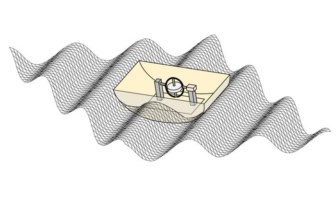
While previous research in the UK has suggested that bees do not feed on oilseed rape, a new study shows it is the most important nectar source to honeybees while it is in flower. This must now be considered in future discussions on neonicotinoid pesticides, which are widely used on oilseed rape.
Matthew Pound and student collaborators from Northumbria University in the UK analysed pollen from samples of honey, which they took from different times of the year to assess the bees’ changing preferences. Honey samples taken in June and July suggested that bees visited oilseed rape flowers more than any other, with the plant flowering in spring and providing the bees with copious quantities of nectar.
This contrasts with previous research, which indicated only limited honeybee foraging on oilseed rape. Pound and colleagues believe this is due to the previous study looking at pollen pellets the bees collected to feed their colony, whereas bees use oilseed rape solely as a source of nectar for producing honey.
The researchers used a standard method of chemical processing to extract pollen from the honey samples. This involved diluting the honey with ethyl alcohol and using a centrifuge to concentrate the pollen. The pollen grains were then subjected to acetolysis using acetic anhydride and sulphuric acid. After all this, the pollen samples are mounted on microscope slides, allowing the individual pollen grains to be counted and analysed.
The result of this study impacts on our thinking around neonicotinoid pesticides. These chemicals are known to be harmful to honeybees, leading them to be banned by the European Union in 2013 (though their use can still be permitted in emergencies). Previous findings disguised the risk posed to honeybee colonies of using these pesticides on oilseed rape. Additionally, with the UK set to leave the European Union and draft its own policy on pesticide use, the potential risk to bees must now feature in the debate.
The importance of bees lies in their pollination of plants, including crops. Some 75–80% of global crop pollination has been estimated to be due to insects, with an estimated worth to the global economy of €153bn. But honeybees are in decline in Europe and North America, part of a much wider, global fall.
Environmental change, pathogens, parasites and beekeeping practices have all been linked with this decline, along with the use of pesticides. While the European ban on neonicotinoids has reduced the yield from oilseed rape, this loss must be balanced against the lasting damage these substances do to honeybees, which are of great importance to the ecosystem and the economy.
Pound and his colleagues published their work in Palynology.



